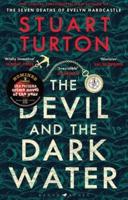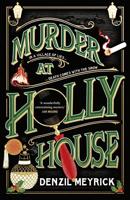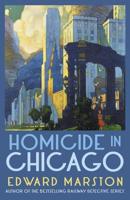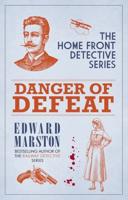Publisher's Synopsis
It is November, 1929. The stock market has crashed. The giddy period known as the Roaring Twenties are about to end. But Cyrus Skeen, private detective, is not too concerned. He never bought on margin or gambled on "sure things" to make a quick buck; his wealth is secure. He is worried that the government may begin to make things worse by intervening with the panaceas of welfare and inflation. Many businessmen and investors made that mistake and have been bankrupted. Ruined, some have committed suicide. Will Rogers commented that speculators were selling window space to men who wished to jump to their deaths. But not all have leaped from their office windows to end it all. Lucian Maxey, president of Maxey Motors in San Francisco, seems to have committed suicide by putting a gun to his head. The medical examiner and police have written off the death as a suicide. Eugene Maxey, his son, a professor at Stanford University, however, hires Skeen to prove that his father was murdered. A bad check causes Skeen to discover that the man who hired him is not the real Eugene Maxey, but an imposter. Skeen is then drawn into a bizarre conspiracy that leads to a twisting trail of lies, of half-truths, to England, and an odd organization near Cambridge University with ties to the burgeoning Nazi Party in Germany. Skeen then meets the genuine Eugene Maxey, who is as perplexed by the imposture as is the detective. Skeen consults with his friend on the police force, Lt. Patrick Donovan, and with Lt. Raggio, the homicide detective who oversaw Lucien Maxey's suicide. Skeen searches an abandoned bungalow owned by the dead businessman in a small town south of the city, and is shot at. But there he finds evidence of a connection between Maxey and the Nazi Party. Was the imposter an agent of the Nazis? Skeen talks with an agent from the Bureau of Investigation (not yet known as the FBI), and learns that the Bureau does not take the Nazis seriously enough to devote any attention to them. After all, Hitler and his Brown Shirts have not yet won a plebiscite to rule Germany; they might be beaten by the Communists, and it is Soviet agents and their anarchist activists in the country who concern the Bureau. But then a German war veteran attempts to murder Skeen in his own office. The man was a member of the Avalon Association, a political organization with proven sympathizes for the Nazis. There are branches of the organization in San Jose, Chicago, and New York - and in Washington. Skeen wraps up the case with his signature élan.










